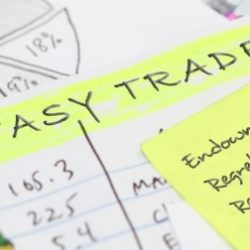
You’ve seen the ads everywhere for Daily Fantasy Sports (DFS). FanDuel and DraftKings in particular have blitzed the media since start of the NFL season (though DFS is available for all of the major sports). Their goal is to target an audience of sports fans who want to draft teams of individual NFL players for a single weekend and compete with other fans, either head-to-head or in larger tournaments. You can win or lose real money, and the sites currently do not fall under the jurisdiction of sports gambling. Note: Lawmakers are currently evaluating whether to regulate the DFS industry and in what manner. This is actually in a very similar to the online poker industry 10 years ago, but that is the subject of another post.
A number of traders at SIG are huge fantasy sports players, and some are also competing in the DFS world. Is this a coincidence? Or are there certain skills and approaches that overlap with trading, fantasy sports, and daily fantasy?
One of the most important concepts in trading is having an idea of what is fair value for the product or instrument that you are trading. This fair value is calculated based on expected payoffs and requires you to take into account numerous factors and input them into a pricing model.
In DFS, you also must have a fair value for the players you are drafting. Each player (or asset, if you will) can be projected to contribute a certain number of points to your team’s fantasy score. Just like with financial products, people often disagree on what are expected outcomes, leading to differences in valuation. In both worlds, it’s important to incorporate all of the information available at your disposal to come up with an informed fair value.
However, regardless of how carefully you calculate your fair values, there will always be variance and volatility in your results. This is what keeps things interesting in trading and in the sports world! A company can unexpectedly blow earnings out of the water, or announce that they had an accounting error leading to much worse results. A star football player can get injured, or a rookie wide receiver can exceed all expectations and catch 8 passes for 150 yards and two touchdowns.
Good traders and good fantasy sports players will be able to properly prepare themselves for unexpected variance and volatility.
In trading, it’s extremely important to understand the underlying framework of the system in which you’re operating. When you’re trading options, you need to know what an option settles to (stock, cash, or a combination?). When you trade an index, you need to know the rules of that index (how is it weighted? When does it rebalance?). What are the rules and fees for the exchanges you are trading on?
In DFS, you must know the scoring system for players and how the prizes are structured. Do players get 0, 0.5, or 1 point per reception? How many points for a passing touchdown? What kind of game are you entering – is it a head-to-head, or a 50/50 payout game where the top 50% of the field doubles their money? Or, is it a large scale tournament where the payouts are heavily weighted to the top 1% of scorers? The payout scheme should heavily influence how you construct your lineup.
Trading is a massively multiplayer game with millions of participants. Each party has their own motivations and subsets of information that they may hold. As a trader, we spend a lot of time trying to interpret information from the order flow we observe in the world. We can use this information to adjust our fair values and influence our decisions. We need to adapt our strategy to our competition.
DFS is also a game with, potentially, many participants. Any given week, public sentiment on ‘hot’ or ‘cold’ NFL players can greatly affect how often a player is selected for lineups. For example, Tom Brady and the Patriots have started the 2015 season on an offensive tear. In a large tournament, you can expect many people to pick Patriots players on their roster. So if you are looking to cash in the top 1%, it may be prudent to adjust your strategy and choose other players from other teams that are less-owned. You can then position yourself for winning without splitting the top prizes with other people who have the same team as you.
The concepts of fair value, volatility, understanding the game, and adapting your strategy are just a few of the ways that trading and playing daily fantasy sports are similar.




Subscribe Now
Get each new post sent straight to your inbox
We appreciate you taking the time to read our blog and share your feedback. Please be respectful and keep your comments as useful and relevant as possible. We reserve the right to remove comments that contain harassment, offensive language, or are promotional in nature.
Comments are closed.